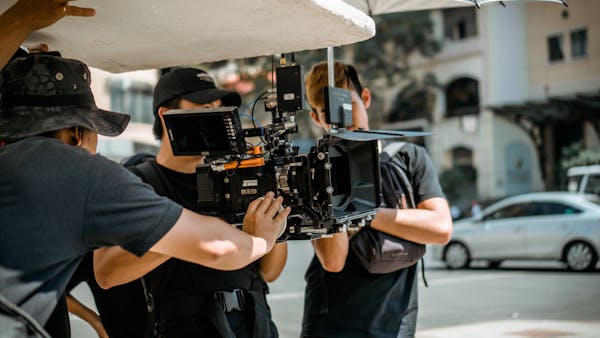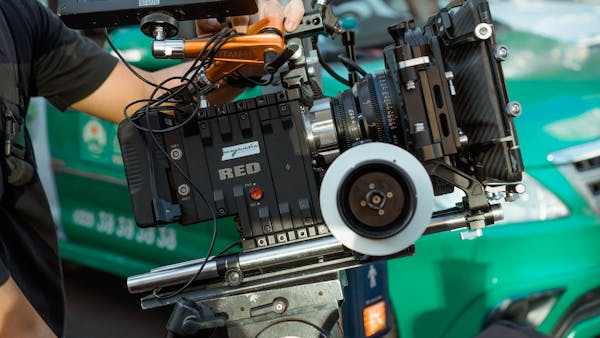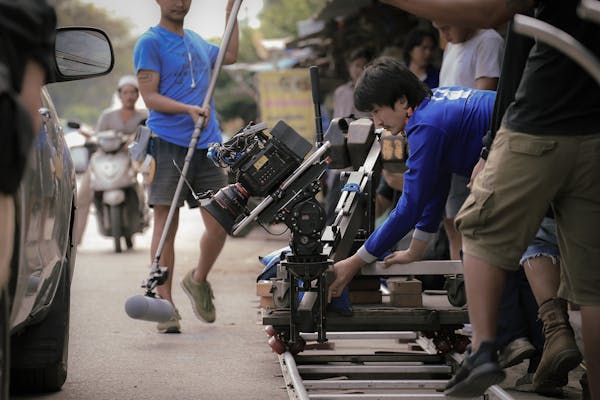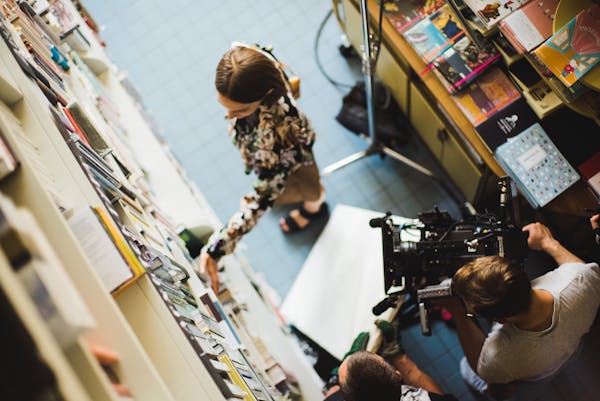A 5 min read
The silver screen has always been a place of magic and innovation, transporting us to fantastical
worlds and captivating our imaginations. Today, a new kind of magic is brewing behind the scenes: Artificial Intelligence. AI is no longer a futuristic fantasy; it's actively shaping how movies are made, from the initial spark of an idea to the final cut on the editing timeline. AI Revolutionising Film.
This isn't about robots replacing directors. It's about AI becoming a powerful toolset, enhancing creativity and efficiency at every stage of film making. Let's dim the lights and explore how AI is transforming the industry:
Pre-Production: Scripting the Future with AI's Help
Imagine a tool that could analyze your script, predict its emotional impact on the audience, and
even suggest improvements to pacing and character development. That's the power AI brings to pre-production. Companies are using AI to analyze scripts for marketability and creative potential. For example, Scriptbook's analysis of the screenplay for "The Revenant" revealed a high probability of award nominations, a prediction that proved accurate with the film's multiple Oscar wins.
AI is also changing the game for casting. Imagine sifting through thousands of actors' profiles and past performances to find the perfect fit for a role. AI platforms can now analyze facial features, acting styles, and even vocal characteristics to match actors with roles with incredible accuracy, streamlining the casting process and potentially uncovering hidden talent.
Location scouting, often a time-consuming and expensive endeavor, is also getting an AI boost. By
analyzing images and data, AI can identify ideal filming locations based on specific criteria, such as lighting conditions, architectural styles, and even proximity to resources. This saves filmmakers valuable time and resources, allowing them to focus on the creative aspects of bringing their vision to life.

Production: AI Steps onto the Set
The impact of AI on production is nothing short of transformative. Advanced camera systems now utilize AI to execute complex camera movements with precision and fluidity, capturing dynamic shots that would be challenging, if not impossible, for a human operator.
Visual effects (VFX) are where AI truly shines. Creating realistic CGI characters and environments has always been a time-consuming and resource-intensive process. AI is significantly speeding up this process. For example, in the film "Avengers: Infinity War," AI was used to create the incredibly detailed and expressive face of Thanos. This level of realism would have been impossible to achieve without AI, and it has set a new bar for CGI in film making.
AI is also being used for real-time rendering, a game-changer for filmmakers working with complex visual effects. Traditionally, rendering CGI-heavy scenes could take hours or even days per frame. AI algorithms can now predict how light and materials will interact in a scene, drastically reducing rendering time and allowing directors to see their vision come to life much faster.
Post-Production: The AI-Powered Editing Room
The post-production process, where hours of footage are meticulously crafted into a final product,
is also benefiting from the AI revolution. AI is now automating tasks like scene detection, color correction, and even creating rough cuts based on specific emotional beats. This allows editors to focus on the creative aspects of their craft, finessing the story and emotional impact of the film.
Sound design and music composition are also being enhanced by AI. New platforms now available are able to generate original scores tailored to the mood and style of a film, while others can mimic the compositional style of renowned composers. AI can even automate sound effects creation, analyzing scenes and intelligently suggesting appropriate audio cues.
High-quality dubbing and subtitling are crucial for reaching a global audience. AI is playing an
increasingly important role here, too. AI-powered language translation tools can generate subtitles in multiple languages with remarkable speed and accuracy, while advanced text-to-speech algorithms are creating more natural and expressive dubbing, breaking down language barriers and making films
accessible to wider audiences.
Audience Engagement and the Future of Film:
AI's impact extends beyond the film making process itself. Streaming services like Netflix use
sophisticated AI algorithms to analyze viewing habits and recommend content tailored to individual preferences. This personalized approach keeps viewers engaged and helps them discover new films and shows they might never have found otherwise. AI Revolutionising Film.
Studios are also using AI for predictive analytics, analyzing data to forecast a film's potential success. This information can inform marketing strategies, release dates, and even influence creative decisions during development.

The Future of Film: Exciting Possibilities and Ethical Considerations
The future of film making with AI is brimming with exciting possibilities. Imagine AI tools
that can generate entire scenes based on a director's prompts, or virtual actors who can portray any character imaginable. As AI technology continues to advance, the lines between reality and imagination will continue to blur, opening up new creative avenues for film makers.

Conclusion
Ultimately, the key to harnessing the power of AI in film making lies in striking a balance—embracing its potential to enhance creativity and storytelling while carefully considering its ethical implications. As AI continues to evolve, one thing is certain: the future of film is bright, innovative, and undeniably exciting.
Speak to Qvantia today, we would be very happy to help - info@qvantia.com
Qvantia - AI Insights

